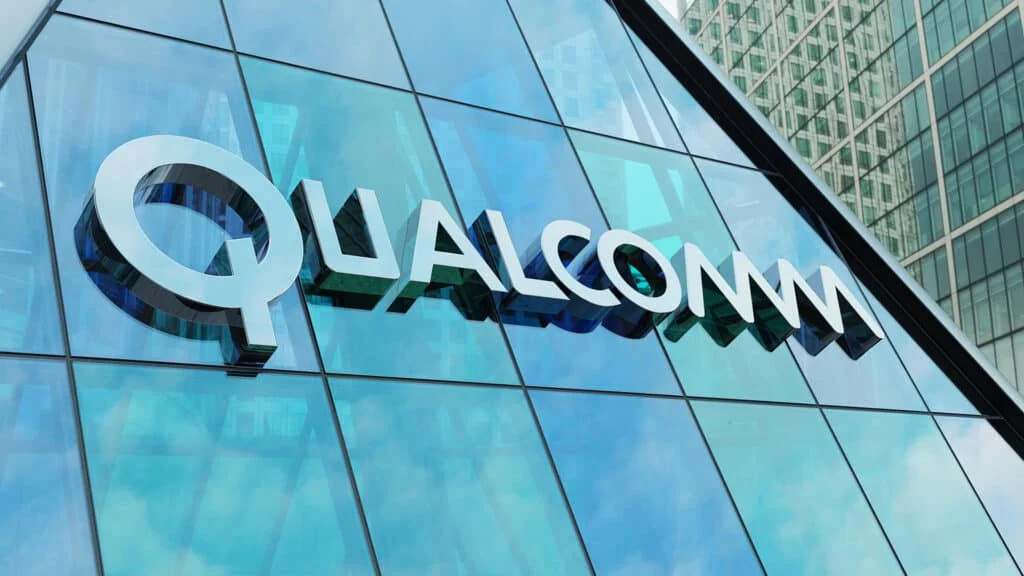On this episode of the Futurum Tech Webcast – Interview Series, host Daniel Newman welcomes IBM’s Roger Premo, General Manager, Corporate Strategy and Ventures for a conversation on the company’s launch of the IBM Enterprise AI Venture fund.
Their discussion covers:
- The importance of the current moment in time with regard to AI
- An overview of IBM Ventures and how the company has prioritized investments in AI and generative AI
- The launch of the IBM Enterprise AI Venture Fund – a $500M fund the company plans to invest in a range of AI companies
- IBM’s investment strategy for the fund, how it partners with companies, and how this fund will help build its communities
For more information, visit the IBM Ventures site here, and see the full press release on the IBM website.
Watch the video below, and be sure to subscribe to our YouTube channel, so you never miss an episode.
Listen to the audio here:
Or grab the audio on your streaming platform of choice here:
Disclaimer: The Futurum Tech Webcast is for information and entertainment purposes only. Over the course of this webcast, we may talk about companies that are publicly traded, and we may even reference that fact and their equity share price, but please do not take anything that we say as a recommendation about what you should do with your investment dollars. We are not investment advisors, and we ask that you do not treat us as such.
Transcript:
Daniel Newman: Hey, everyone, welcome back to another episode of the Futurum Tech podcast. I’m Daniel Newman, host and CEO of The Futurum Group. Excited for this interview conversation today with someone that I’ve talked to a few times before, in fact, many times before. We are going to be talking about some news from our friends at IBM. IBM Ventures has a new announcement around AI and we’re going to welcome back Roger Premo. Roger, welcome to the show. It’s good to see you.
Roger Premo: Good to see you too. Good to catch up.
Daniel Newman: So let’s start with the macro. I think you and I have talked enough to know that we both are passionate about this and while your news is very important and timely in my opinion, what’s more important is that we’ve probably had one of the biggest inflections in technology, at least in a few decades. I’d say the internet, in many ways, was maybe the last moment that was this important to not only tech, but really to society. IBM has captured this moment, it’s been core to the company’s narrative, it’s leadership. We’ve had Arvind on, we’ve had many other leaders, including yourself, on our various shows and platforms to talk about this. But love to get your perspective as we’re almost all the way into the year, one year since the ChatGPT moment, one year since generative hit the scene and one year since apparently people thought AI was invented. Joke. How are you feeling about this at this period of time? What kind of observations are you making?
Roger Premo: Yeah, well I do think I agree. It’s a real inflection point. I’d say… So we’ll get into it on the venture side, but my job as I lead Corporate Strategy and Ventures for IBM, and so first as a strategist, I look at what’s going on inside of our customers and how they’re applying technology. I think first, you see practically every company in the world has digital transformation at the absolute top of their CEO and board agenda. How do you apply technology to change your business for the better or create new customer experiences? New revenue streams? Improve productivity?
Most companies that have gone through their digital transformation they announced in circa 2017, it didn’t deliver. So they’re re-looking at it because the urgency of getting it done is higher than ever. To your point, now there’s some real technologies with generative AI. Actually what I can tackle with my digital transformation is even more impactful. So we’ve been on this long journey, but the notion of technology as being the IT department to technology being what separates winners and losers in industries, we’re much more to that technology embedded into every company. Generative AI is going to be one of those ingredients that really does separate winners and losers going forward.
Daniel Newman: Yeah, it’s been interesting. We’re in the middle of the late-stage now of the next most recent tech earnings wave. Had the chance, actually, I spent some time with your CEO, Arvind Krishna, but I’ve spent time just in the past week with Bill McDermott, Lisa Su, Michael Dell. I’m talking to all of these leaders, Roger, and there really isn’t a word that is more critical in the strategy right now than AI. At the same time though, we are also kind of seeing… I’ve got this op-ed I’m working on that’s kind of like we are finally, after about three quarters of complete craziness around AI, starting to settle in on, okay, we’ve got LLMs, we’ve got generative AI, we’ve got maybe the killer app, but how do we make money? How does it turn into economic value? How do we regulate it? How do we make sure that society is better for it? How do we indemnify things that you’re doing over at IBM, companies that want to go all in and make the investments but aren’t 100% sure about the fidelity of this technology? These are real questions and they’ve got operational costs, they’ve got strategic implications, things that you probably wake up every day thinking about.
But another thing, Roger, that’s very interesting, you heard me make a kind of joke about how AI was apparently new in 2022 when ChatGPT was invented. But let’s face it, we’ve got three to four decades of algorithms being developed. I know people that did PhDs in AI in the nineties. This is not all that new. It isn’t really, but it is seemingly this significant inflection and IBM, by the way, I think it won Jeopardy with its Watson computer some time ago. I mean, talk a little bit about the buildup to what you’re doing and how you’re thinking about AI and just remind people a little bit about IBM’s pedigree in AI and why it’s been in this for so long.
Roger Premo: Yeah, absolutely. I mean, to your point, I think the term artificial intelligence was coined in the 1950s. It’s been around for a long time, but the power of computing means that a lot of the visions of what we thought we could do now really become affordable and possible. But to your point, it was 2011 when IBM Watson won Jeopardy and that was not maybe quite the scale of ChatGPT, but it ignited a lot of this interest. I think that’s one of IBM’s core strategic advantages is when you take AI from a consumer context or an entertainment context like Jeopardy and say, “How do I actually create value in the enterprise?” because I agree completely with your diagnosis from earlier, which is there’s been a lot of pilots in practically every company in the world. But actually, the companies that are making the economics of their business have changed as a result of how they’ve applied it to their business. That’s a very small minority of companies at this point.
So that strategic advantage we have is actually understanding what it takes to turn an algorithm into business value inside the enterprise and it does take a lot of things you started clicking through. It’s the right use case and right place in the business where the ROI is correct. AI is actually going to change the company for the better. So picking where to apply it, you start getting to the ethics and governance around it. So we’ve been leaders on ethical AI for years and have a very strong point of view around how this technology can be deployed and a toolkit that helps enforce that governance so that you don’t accidentally have a developer that creates a problem for your business. To your point on indemnification, if they use somebody else’s IP in the code of your digital business, we haven’t yet figured out what the implications of that are, but it is certainly a murky space, so you want to wrap it with the right governance across the business.
Then I think we will also get into it, but also core to our strategy is hybrid cloud. You also want to run that AI wherever your business happens to need it. So we see this generative AI as being one of the things that clients are going through, which is, “Hey, I’m not just going to run the AI in the location where one of these large model vendors tells me. I need it to run in my factory. I need it to run behind the firewall.” So we see a lot of these obstacles in getting from pilot to production in generative AI as things that we’ve really understood for years and we’ve built our company, our strategy, our portfolio around helping companies solve those practical obstacles to turning AI into business value.
Daniel Newman: Yeah, and I think, Roger, if I’m articulating this correctly too, this is also creating a fairly seminal moment for IBM to consider its investment strategy, to consider how it partners with companies, which companies it partners with, how it builds its communities. There’s a new era of developers. We all know there’s a race that’s being won for the attention of… It’s being fought for the attention of these developers that are building AI. And of course, we know that to some extent, there’s this kind of notion of AI writing code and how that’s going to change industries as well. It’s definitely going to speed it up, so the economics here are compelling, the economics of more efficiency, the economics of more productivity. While there is a lot of the fear mongering that goes on and in an unregulated uncontrolled environment, perhaps AI could become very risk intensive. But I also think that there are companies that have the highest ethical standards that understand how AI can make a difference in industry, make people’s lives better, solve major problems in healthcare, solve major problems in fraud and financial services.
That really does fit the ethos of IBM. And when I say this, look, I’ve been to your Quantum labs and I’ve looked at what you’re doing in spaces like that, and there’s times even myself, I’m like, “Great, this is like a hundred years out,” and I’m being facetious, by the way. It’s not. But we can barely think past tomorrow. It’s like, “I want to think about lunch, it’s morning.” That’s how the markets react a lot of times like, “Wait. So you’ve got a cool technology you’re developing and you don’t know how to make money from it yet?” Well, this is real. It’s tangible. You can make money right now. There’s an opportunity to take it to market. Of course, there’s a whole startup ecosystem that’s been created that’s really substantial that has to be driving where you’re going. So you have to separate the rational from the irrational exuberance of generative AI. But it sounds to me like the news I’m hearing is you’re really going to make another wave of significant investment commitment to AI now. Talk a little bit about the news, talk a little bit about the decision, talk a little bit about how you’re planning to build out this investment strategy for AI.
Roger Premo: Yeah, let me just start real quick with just our strategy and then we’ll get directly to the news. So we’ve said for years that our strategy was hybrid cloud and AI and we were very strong on what hybrid cloud meant with the acquisition of Red Hat and OpenSource as that hybrid platform. With the AI, this year in particular, we’ve declared our generative AI strategy with WatsonX as our platform that we announced at our Think Conference earlier this year. Now we have a number of clients that have declared WatsonX as their generative AI platform. We’ve got use cases and production. We’re showing real value, taking advantage of that leadership we talked about before. But we also recognize that part of our strategy is also the ecosystem. The ecosystem may be the big partners of the world. You were naming some names, if it is the AMDs or the SAPs or that, but it’s also the early stage community.
And so what we’re announcing is a $500 million Enterprise AI Venture Fund to help us invest with the early stage community to help those early innovators that are going to help. It’s AI for business. That’s why we call it the Enterprise AI Venture Fund. So there will be phenomenal consumer applications that are going to come out of generative AI. We’re really working on… We want to work with the early stage community that helps enterprises take advantage of it and may be new capabilities that are created for the enterprise on top of generative AI. It may be a lot of the steps if it’s security or operations or price performance or governance, the things that enterprise will need to bring these platforms to life. So we’re looking at the early stage community around this and really saying that we want to lean in together both to invest in that community, but then over time to build the partnerships and product integrations and go-to-market integrations that help that early stage community succeed with IBM, as well.
Daniel Newman: Well first of all, I love that you’ve put the prefix of enterprise and the reason I love that is I think that alone allows you to have a much more thoughtful thesis and eliminate, to your point, what’s going to be a lot of very cool companies that Silicon Valley investors on the West Coast might want to play with. And by the way, like you said, it’s not about those not being good. It’s about having the, I think, the investment strategy matched, to some extent, the business strategy. Meaning are you incubating the kind of companies that could potentially become part of IBM? Are you incubating the kind of companies that will build on IBM? Are you incubating the kind of companies that will be solving the enterprise challenges? The enterprise challenge is so substantial, but the way we mostly societally describe AI is much more consumer.
We talk about talking to your car, you talk to your phone, you’re talking to your… And you’re asking it to order food or deliver a package or you want to find the movie you want to watch tonight, things like that. But the application of taking an enterprise’s information database and enabling something like drug discovery, enabling something like anti-money laundering. By the way, again, doesn’t it sound a little bit like some of the things you’re doing with Quantum? When I think about some of the biggest applications, but also scale. I mean, Roger, great talent. You want to invest in it, but it’s hard to find. There’s lots of functions, businesses that generative AI can offset, so you can make the best and most significant investments in your most critical people. I’d love to know a little bit of the process though, how you’re going to think about this because 500 million is a lot. How are you going to distribute it? Is it going to be the small investments? Are you looking for bigger seed into some companies? How have you thought about what’s going to be the criteria for these?
Roger Premo: Yeah, I’d say a couple of things. Well, first of all, we already got a headstart on it. So in August we invested with a number of other strategics in Hugging Face, and then we recently placed an investment in HiddenLayer, which is the leader in AI security for this large language model era as well. So we’re already down the path on it. We tend to invest at a relatively early stage, so C to series A, maybe a smaller series B. The lines on those continue to move on what those check sizes are, especially with some of the investments some of these companies need to train models or work in the space. But I’d also say part of the process that we’ve been piloting… So about a year and a half ago we really changed the IBM Ventures model and we think we do have a best in industry way of participating with the early stage community.
As a model, when we went around and did a listening tour of what was successful in corporate venture arms, it was really figuring out where IBM as a business can help differentiate that early stage community and bring differentiated value to them. So that’s part of why it’s AI for business. If IBM was participating in the consumer tech industry, that’s not our area of expertise. We wouldn’t bring something incremental to that early stage community. But what we do is we try and pair people from our product teams that are deep domain experts with an investment team that has decades of investing experience. Together, that means when we’re talking to an early stage community company, we can very quickly figure out the best places they can plug in, how we can support them, how the insights we have might help shape some of their agenda. So it’s that kind of advice and acceleration and collaboration that comes from bringing not just capital, but these deep domain experts to collaborate with that early stage community.
Then we also pair it with a portfolio management function. So as we’ve been piloting this and we’ve got these great success cases of companies that we’ve invested in, we’ve already exited from, some that went straight from on our radar screen as a venture investment to an IBM acquisition, but this portfolio management function that has also helped stand up commercial collaborations, product integrations with that early stage community. So they’re really seeing value. I have some of the companies that have been part of that new IBM Ventures model that say, “I can look at a double-digit percentage of my growth and say I can directly attribute that to the collaboration with IBM.” So that’s not what we do upfront when we place the investment, it’s what we do downstream as we continue to collaborate with our portfolio. IBM as an investor can be an advisor and an accelerant to their businesses because we have that history and expertise in the spaces that they’re covering.
Daniel Newman: Yeah, I would actually say, Roger, as a builder and someone that invests in early stage companies, it’s often underrated. Money itself has become maybe in the most wildly exuberant times in ’21 when money was just splashing around the valley and investors. Could the problems of founders be solved with a check? But I think what you just said, it deserves a little extra attention. These people that are building companies need advice, they need strategy, they need connections, they need partnerships, they need support. Sometimes they need therapy. I say this with… I mean, look, we’ve all seen the straight up and to the right line of a successful founder is not straighten up and to the right. I saw a quote the other day and I don’t know if Messi actually said it, the soccer player, one of the best of all time, arguably the best. He said something like, “It took me 17 years, 244 days and some odd hours to become an overnight success.”
I think when you’re a startup, you’re constantly up against that, yes, you do eventually arrive, but there’s a lot of nuance in that journey. So it’s great to hear that you’re thinking about more of the holistic partnership, all of the connections and relationships and ecosystems and technology you can offer, not just money, because how much is it worth? That’s what everybody spends time. How much is it worth? Another thing I just want to lean in, as I was reading through this, and you kind of mentioned this, but you’re also investing in the ecosystem in companies that are a little further along, like Hugging Face. We’ve all seen Hugging Face has been one of the stars of the AI boom. It has been highly relevant and visible throughout the last year of generative AI. It sounds like you’re sort of continuing to reiterate your bets as it pertains to going down the open route when it comes to LLMs. We know that there does seem to be a very… There’s two schools of thought. There’s the build it, centralize it, own it, control it thought that some big tech companies have. And then there is the very democratized approach and it seems like IBM’s all in, including its money and its technology, on the democratized approach.
Roger Premo: Yep. Listen, I think that will be a debate that rages, but I think we’ve already seen the evidence through this year, that I think the world is moving to a multi-model future on this.
Daniel Newman: I agree.
Roger Premo: I’ve seen so much innovation. If it’s what Meta’s doing with Llama 2, if it’s the OpenSource community, if it is fine-tuning a small model that gets similar performance to a large model at a much lighter cost point, I think we fundamentally believe that accessing millions of innovators versus a handful of innovators in a few companies that closely control them will allow our customers to get better value from this technology. I think Hugging Face is kind of the community where so much of that open innovation is brought to bear in the large language model and sorry, foundation models overall. That was probably a little bit later stage than we typically would, but it is so tightly… All the investments we’re also going to do, because I am the strategy leader and ventures on my team as well, everything we’re going to do is aligned to our strategy. To your point, Hugging Face, open models, OpenSource, being able to run these models wherever the enterprise needs to run them, that is so highly aligned to where we’re headed as a company that even though it was a little bit out of our strike zone on stage size, the strategic alignment meant it was a great investment for us.
Daniel Newman: Yeah, I like that you said that. I was going to reiterate that if you didn’t was the picking open versus closed and that’s in cloud for instance, a very significant debate. When you picked Red Hat and made that massive investment and then went open hybrid and even in your entire hybrid strategy, even in your hyperscale infrastructure strategy, really said, “Our approach is open, open, open. We will work with everyone. That’s where we, as IBM, would win.” I think this is just another way to reiterate that. I tend to agree with you. We’re even seeing it in terms of layers of abstraction where people are coding. JAX and PyTorch moving up the rank, not to get too technical, which is going to, could potentially open doors for new Silicon innovators because obviously when a lot of libraries developed Incuda, and this isn’t an NVIDIA plus, I’m just saying there’s all these talk of the lock-in. Well if you can remove layers of abstraction, make the code more portable, moving between Silicon and moving between infrastructure, it changes the calculus of the business.
So you’re seeing it developers, nobody wants to be locked in is my take. Some will be, but no one wants to be. I think being open in the long run will win, even if sometimes those more narrow ecosystems, short-term act as really good enablers. Roger, as we kind of wrap up here, is there anything else about the overall AI ventures and strategy that you want our community and our viewers to hear about?
Roger Premo: I think we covered it. Listen, I just think it’s our hybrid cloud and AI strategy continues to bear results for IBM. It continues to bring results to our clients. So with WatsonX as our generative AI platform, the Enterprise AI Venture Fund becomes a way to accelerate that strategy and work with that early stage community. So I think the main thing is for folks that are the innovators in that enterprise AI space, we want to talk with you, we want to collaborate with you, we want to succeed together. So I just ask anybody that’s watching that has a great early stage idea, early stage company, reach out to IBM Ventures, ibm.com/ventures, and let’s start our journey together.
Daniel Newman: All right, well you heard it here everyone. Those of you that are building enterprise AI, this may be your moment, not just money but strategic support and help. As someone that’s worked with Roger and the team at IBM for a long time, I’d definitely say this is one you should consider talking to. Roger, that’s going to wrap it up for here today, but I want to thank you for joining me and let’s do it again soon.
Roger Premo: I’m sure we will.
Daniel Newman: All right everybody, you heard it. So hit that subscribe button. Join us for all the Futurum Tech podcast and interview series here with The Futurum Group. For this show, for this episode, it’s time to say goodbye everybody. We’ll see you later.
Author Information
Daniel is the CEO of The Futurum Group. Living his life at the intersection of people and technology, Daniel works with the world’s largest technology brands exploring Digital Transformation and how it is influencing the enterprise.
From the leading edge of AI to global technology policy, Daniel makes the connections between business, people and tech that are required for companies to benefit most from their technology investments. Daniel is a top 5 globally ranked industry analyst and his ideas are regularly cited or shared in television appearances by CNBC, Bloomberg, Wall Street Journal and hundreds of other sites around the world.
A 7x Best-Selling Author including his most recent book “Human/Machine.” Daniel is also a Forbes and MarketWatch (Dow Jones) contributor.
An MBA and Former Graduate Adjunct Faculty, Daniel is an Austin Texas transplant after 40 years in Chicago. His speaking takes him around the world each year as he shares his vision of the role technology will play in our future.












